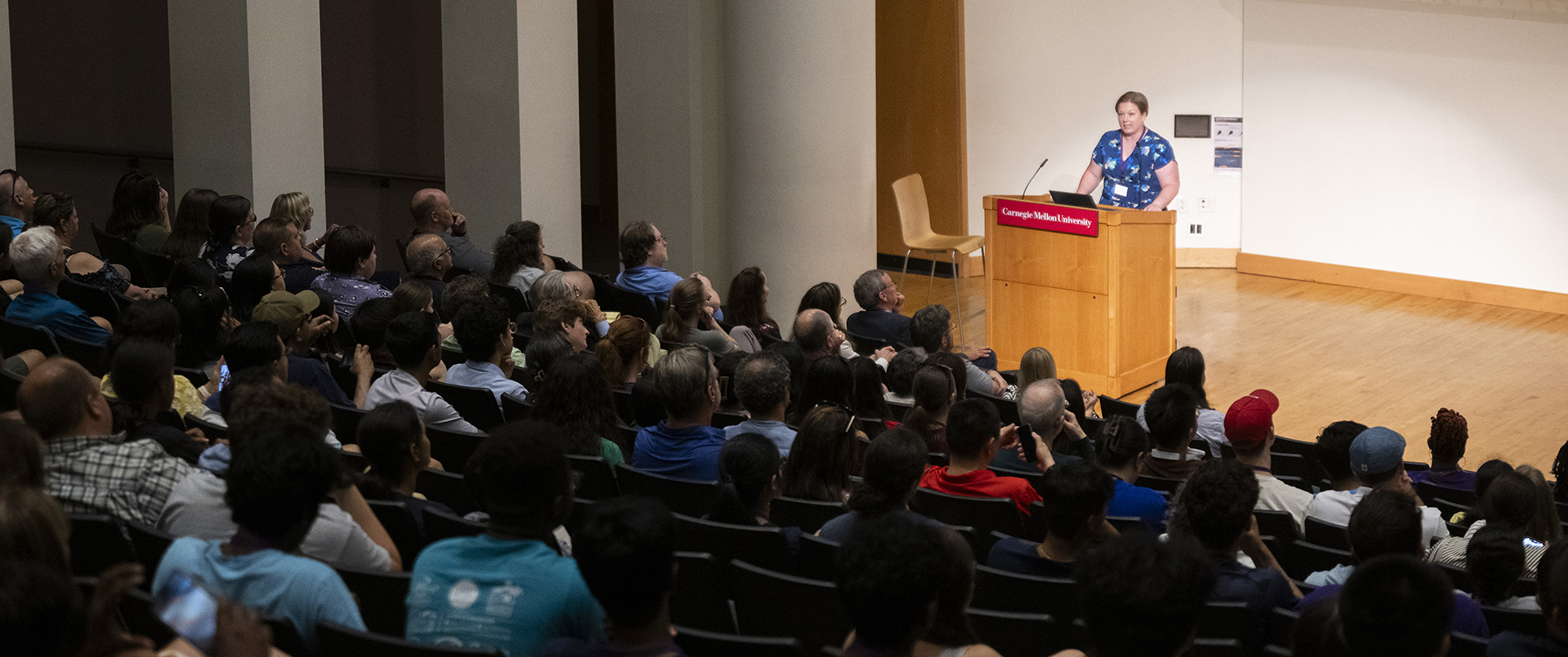Gifted Teens Explore the Sciences at Pennsylvania Governor’s School
By Ann Lyon Ritchie
Media Inquiries- Interim Director of Communications, MCS
- 412-268-9982
Science offers youth an exciting career path—but only if they are ready to choose it.
The state’s most talented high school students will discover their potential at the Pennsylvania Governor’s School for the Sciences (PGSS), hosted at Carnegie Mellon University.
PGSS is a free summer enrichment program for rising high school seniors who reside in Pennsylvania. At least one student represents each of the state’s 29 intermediate units.
Alden Bressler from Williamstown was referred to PGSS by his physics teacher at Reach Cyber Charter School in Harrisburg.
“I thought it was a good opportunity to see what college would be like,” Bressler said.
The five-week program engages participants in college-level biology, chemistry, mathematics, computer science and physics. Classes are taught by area university faculty members.
The Mellon College of Science’s Natalie McGuier, an associate teaching professor in the Department of Biological Sciences, is the PGSS program director for the first time, having been an elective instructor and team project leader since 2015. She is the program’s fourth director.

Natalie McGuier, associate teaching professor in the Department of Biological Sciences, is the program director for the Pennsylvania Governor’s School for the Sciences. She welcomed students and their families to Carnegie Mellon.
Daily activities are “more than the average course load of the average Carnegie Mellon freshman,” according to McGuier, and include core courses, elective courses, one formal laboratory course, one team research project and guest lectures.
“Most public schools can’t provide the challenges needed by gifted students … and so, we need programs like PGSS to help stimulate our students and provide these opportunities,” said McGuier, at the June 23 opening ceremony.
Wanting to learn but lacking enough resources was a common theme that the students expressed in their applications, according to McGuier.
The 2024 program received 524 applications of which 13.7% were accepted.
“This acceptance rate is on par with the elite universities of this country,” McGuier said.
Carnegie Mellon has hosted the program since its inception in 1982. Of the program’s 3,000 alumni, 93% of them have entered STEM careers, where their talents make valuable contributions to the economy and increase the competitiveness of the national workforce.
A 1992 PGSS participant, Jennifer Baccon chairs the Akron Children’s Hospital’s Department of Pathology and Laboratory Medicine. She appreciated the intellectual engagement she received at PGSS as a teenager and the broad exposure it gave her to various areas of science.
“For the first time, I felt like it was OK to be really smart,” Baccon said.
Baccon currently serves as president of the PGSS Campaign, a nonprofit organization that seeks funding to sustain the program. The state closed the program in 2009 during the recession, but PGSS alumni revived it in 2013 through public and private support.
Fundraising increased participation from 56 spots in 2013 to 72 spots in 2024.
PGSS participant Lucy Zheng from Murrysville is thinking about going into medicine. A rising senior at Franklin Regional Senior High School, she first learned about PGSS from friends who attended.
“I’m hoping to just be able to explore further some areas I haven’t been able to learn about in school and other academic activities, like the elective on lasers and a lot of the elective options in physics,” Zheng said. “I’ve never studied physics in school before, so I’m not sure if I’m interested in it or not, but I can figure that out here.”
PGSS participants do not receive high school or college credit or even grades.
The PGSS team research projects are a badge of honor, allowing teens to complete original, hands-on research with expert guidance from faculty and access to state-of-the-art university laboratories.
PGSS culminates July 26-27 in a symposium showcasing the students’ hard work.
Perhaps Curtis A. Meyer, interim dean of the Mellon College of Science, best described the program’s impact as he spoke to students at the opening ceremony.
“You are some of the brightest minds in Pennsylvania,” Meyer said. “You are key to the state’s future and the country’s future. And your ability to innovate and develop creative solutions will transform the future of work and science for all of us.”